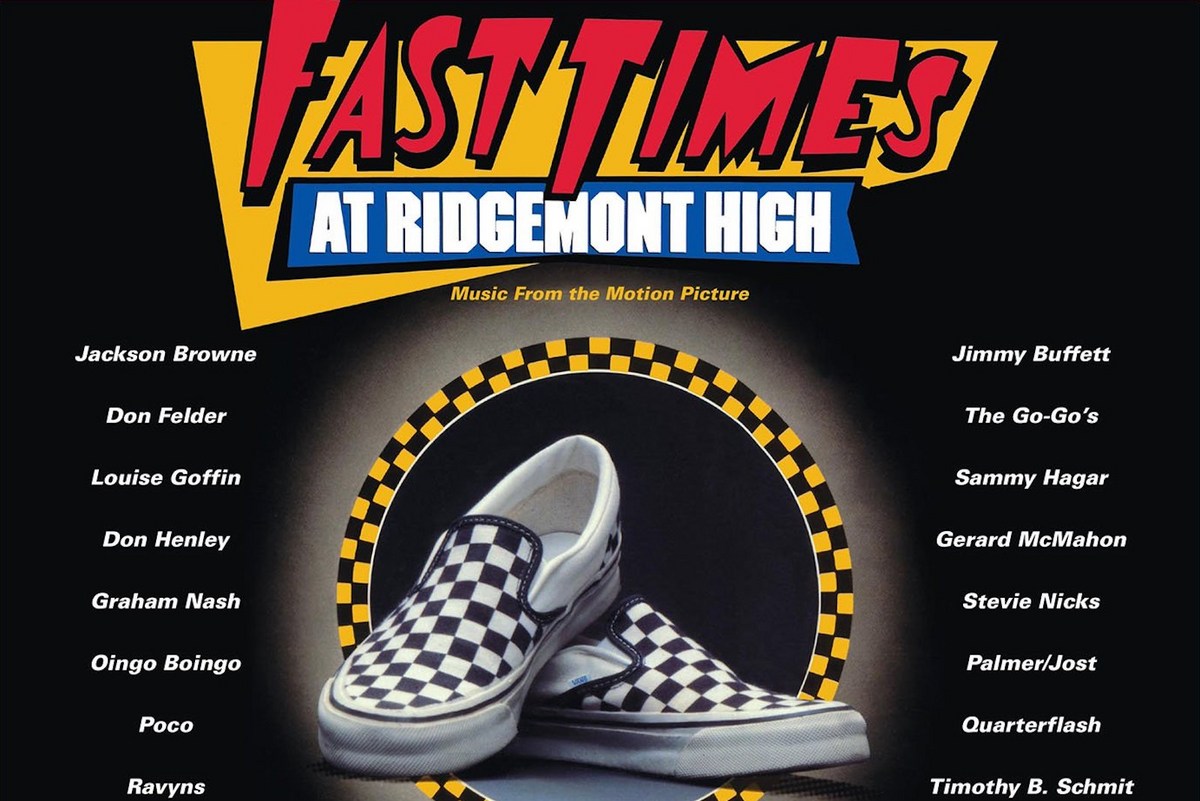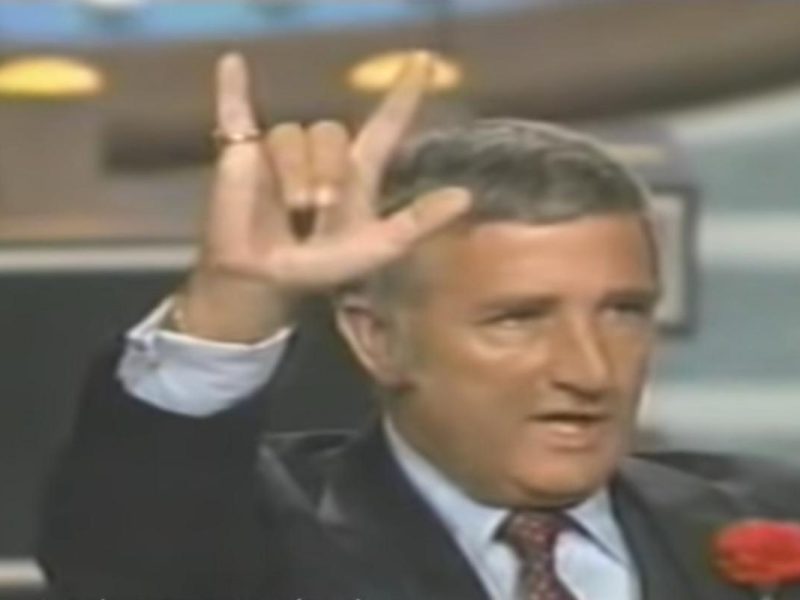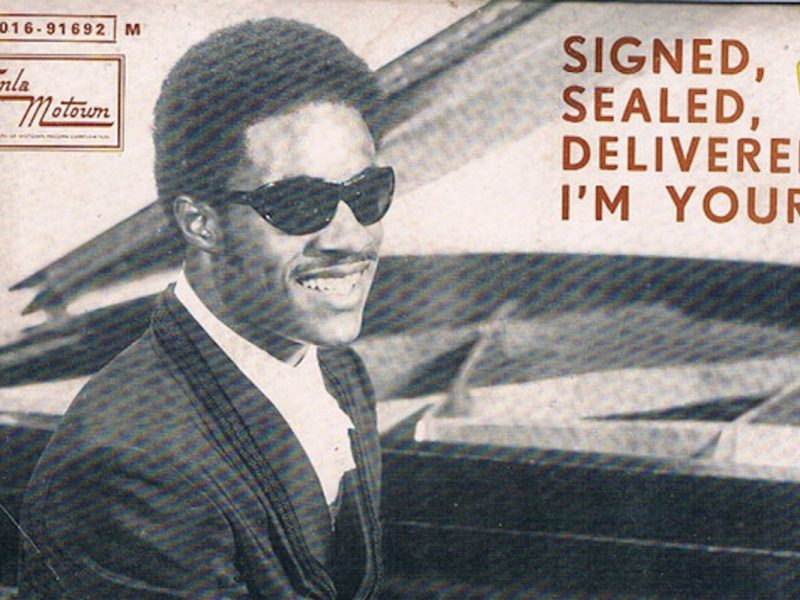Fast Times at Ridgemont High is considered one of the greatest movies of the ’80s. That’s in large part because of a soundtrack which mixed of newer bands (the Go-Go’s, The Ravyns, Oingo Boingo, Quarterflash) and superstars (Stevie Nicks, Donna Summer, Jackson Browne, multiple members of the Eagles).
The musical accompaniment was initially supposed to hew toward ’70s rockers — but director Amy Heckerling disagreed with the direction, according to a 2012 IndieWire retrospective piece.
“Being young as I was at the time, I really wanted a new, edgy ’80s music soundtrack,” she says in the book Breaking In. “I wanted Fear, Oingo Boingo, the Go-Go’s, the Talking Heads, and the Dead Kennedys. I was one of those obnoxious teenagers that thought that the music I liked was great and everything else sucked.”
In particular, Heckerling noted that successfully petitioning for Oingo Boingo’s “Goodbye Goodbye” to be in the film “was a big fight. But I had to make some compromises and put in some songs that I didn’t like at all.” Still, the mix of current and seasoned artists worked, especially because it reflected the musical shifts happening in the early ’80s as classic rockers attempted to figure out where they fit into the burgeoning new wave scene.
Music was also a constant presence for the characters at Fast Times at Ridgemont High, with non-soundtrack songs such as the Cars’ “Moving in Stereo,” Tom Petty and the Heartbreakers’ “American Girl” and “We Got the Beat” by the Go-Go’s serving as a backdrop for notable moments in their lives and livelihoods.
Slick Mike Damone tries to make a quick buck (or 10, or 20) scalping concert tickets. Early in the movie, two kids approach him and ask, “You the guy with the Van Halen tickets?” Damone offers up two seats within the first 10 rows for $20 a pop, though they were $12.50 originally. “All the other scalpers are sold out,” one buyer murmurs, which irritates Damone. “Did you call me a scalper?” he responds. “I perform a service here, and the service costs money.”
Listen to ‘Somebody’s Baby’ by Jackson Browne
Van Halen wasn’t on the Fast Times soundtrack, although future singer Sammy Hagar contributed the title track. Long-time Van Halen manager Irving Azoff co-produced the movie with Art Linson, and also executive produced the movie’s soundtrack and co-compiled the songs. (Azoff’s then-Front Line Management partner Howard Kaufman, who passed away in January 2017, also had a hand in compiling the tunes, as did the late music manager/producer/musician Bob Destocki.)
Unsurprisingly, the soundtrack leans heavily on AOR, highlighted by the Ravyns’ “Raised on the Radio,” Quarterflash’s “Don’t Be Lonely” and Billy Squier’s “Fast Times (The Best Years of Our Lives).” The music of several Azoff management clients appeared both in the movie and on the double-LP soundtrack.
Eagles members Don Henley, Joe Walsh, Timothy B. Schmit and Don Felder have featured solo songs, while a prom band performs the Eagles favorite “Life in the Fast Lane.” Stevie Nicks’ “Sleeping Angel,” as well as Jimmy Buffett’s “I Don’t Know (Spicoli’s Theme)” appear, as well.
The Fast Times at Ridgemont High soundtrack is also notorious for the songs that could’ve been included but weren’t. Screenplay author Cameron Crowe posted original movie production notes which promised that “among the artists who will write and perform original songs for the movie” were Ringo Starr, Michael McDonald and Bob Seger, a trio of heavy hitters who ultimately didn’t take part.
In another what-could-have-been moment, Todd Rundgren recorded a song called “Attitude” for the movie, but it wasn’t used. Heart also wrote a song called “Fast Times” that didn’t make the soundtrack but did appear on their 1982 LP Private Audition. This omission in particular struck people as odd, since Heart guitarist/co-founder Nancy Wilson was dating Cameron Crowe at the time.
Listen to ‘Sleeping Angel’ by Stevie Nicks
Label competition reportedly got in the way, according to the Los Angeles Times. Heart was signed to CBS Records, and the Fast Times soundtrack was due on then-competitor Elektra-Asylum. As a result, president Walter Yetnikoff blocked CBS acts such as Heart, Nick Lowe and Gary Myrick from the soundtrack.
“The way I heard it was that CBS had been on the bad end of some previous soundtrack deals, especially Urban Cowboy and Heavy Metal, and Yetnikoff didn’t want any part of this one,” Crowe told the Times, while adding that the “tensions between” Yetnikoff and Irving Azoff were “just too great.” (As it happens, Azoff has also produced both the Urban Cowboy and Heavy Metal soundtracks.)
Azoff refuted Crowe’s theory via a spokesperson, who told the newspaper that the lack of CBS artists on the soundtrack was because “we couldn’t negotiate the video rights to the songs in a satisfactory manner.” Yetnikoff confirmed Azoff’s comment was part of the reason, but minced no words with his own response to the situation in the Los Angeles Times story.
“The economic compensation for CBS and our artists is so minuscule when you make a deal with Azoff that it’s not sensible to do it,” he said. “And I haven’t been satisfied with the accounting that we’ve received on our artists that have been involved with previous Azoff soundtrack projects. So a far as I’m concerned, he can just find his artists somewhere else.”
Fast Times at Ridgemont High only made $27 million at the box office. The soundtrack stalled at No. 54 on the Billboard album chart, while Timothy B. Schmit’s cover of the Tymes’ “So Much in Love” reached a modest No. 59. But the LP also spawned a massive hit in Jackson Browne’s “Somebody’s Baby,” which reached No. 7 on the Hot 100.
Top 40 New Wave Albums
From the B-52’s to XTC, Blondie to Talking Heads, a look at the genre’s best LPs.
See Eagles in Rock’s Craziest Conspiracy Theories



